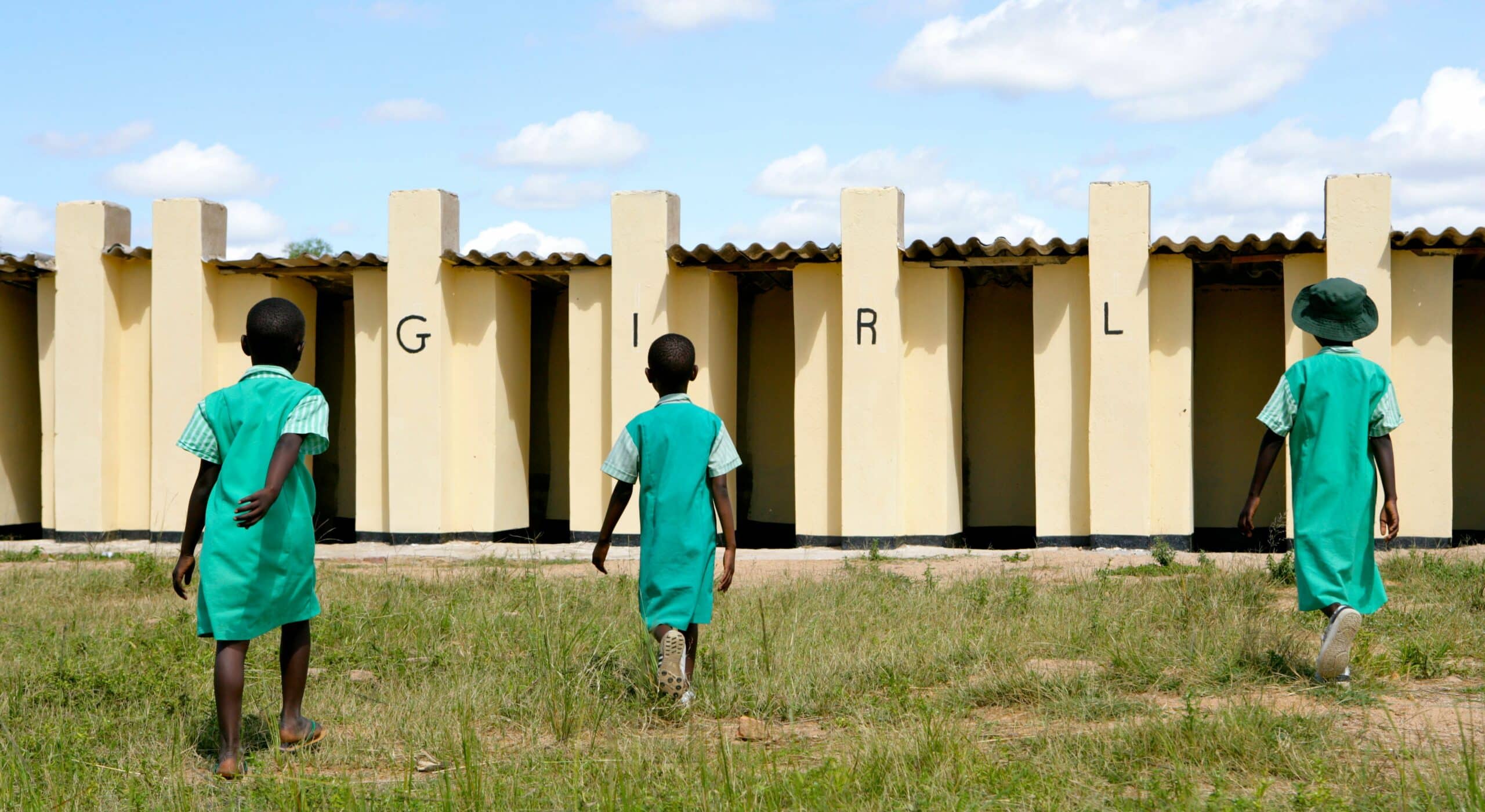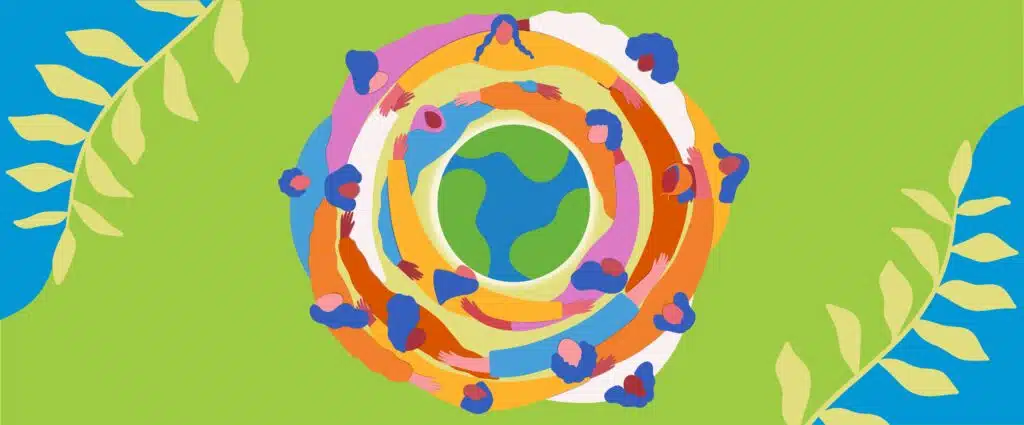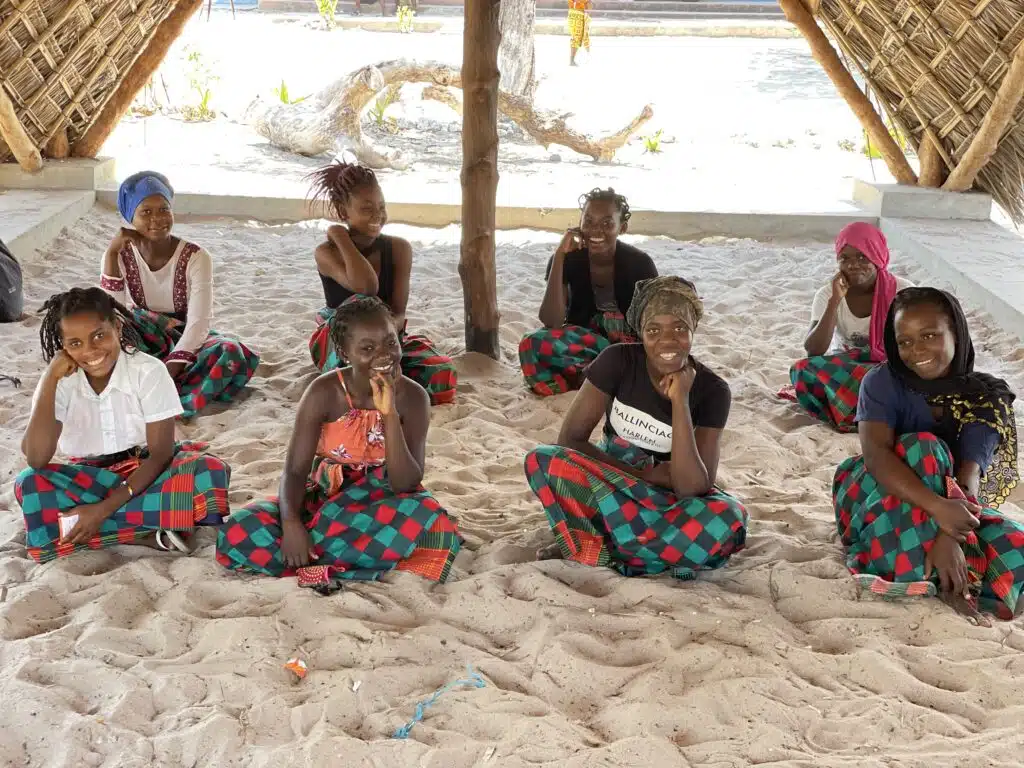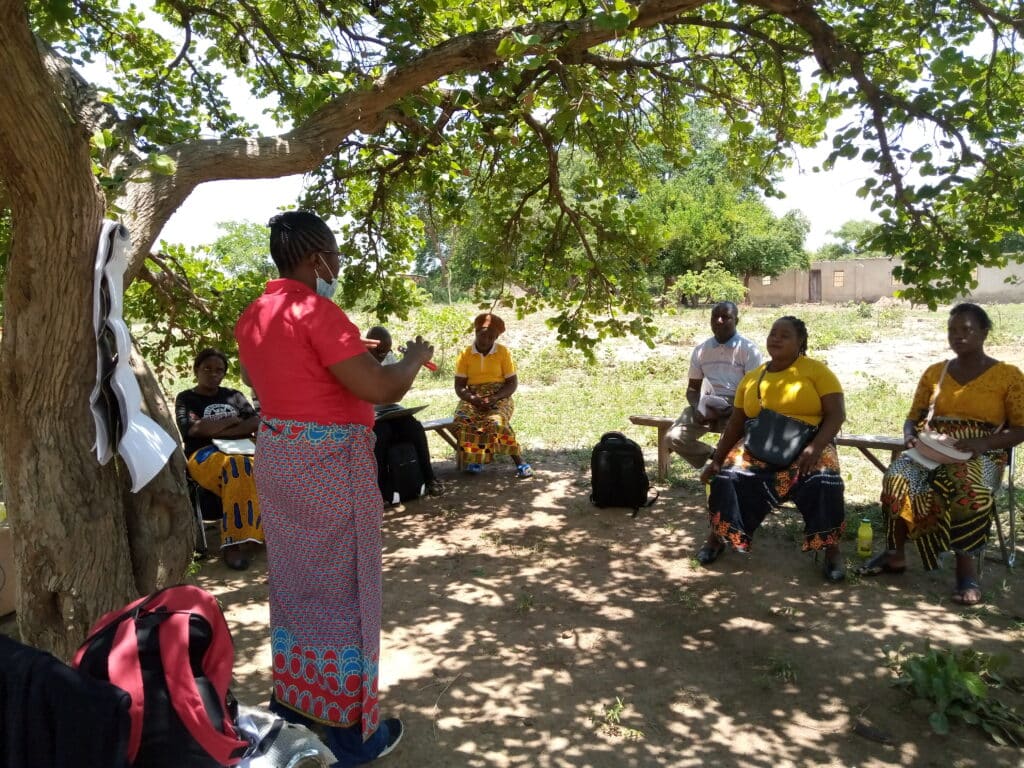Challenging Gender Inequalities
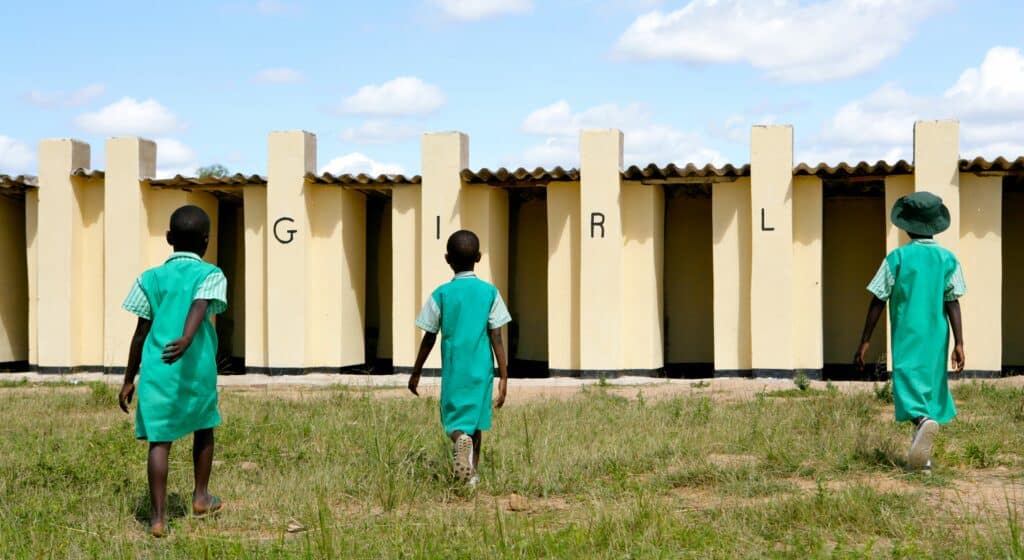
UNICEF Kenya works to protect and promote the rights of children and women in Kenya. With 48 years of service, it is one of the longest-serving international organizations in the country.
One of the many ways UNICEF Kenya works towards gender equality and the empowerment of women and girls is through the provision of Menstrual Health and Hygiene (MHH) solutions and education. UNICEF Kenya advocates for Menstrual Health and Hygiene in schools and communities and as a result the Government of Kenya amended the Basic Education Act and is providing free sanitary pads to all adolescent girls in schools. In 2019-2020, UNICEF supported an incredible 31,000 girls and women with reusable menstrual kits in partnership with AFRIpads in addition to MHM/WASH facilities and education.
AFRIpads spoke to Agnes Makanyi, UNICEF WASH Specialist, about their Menstrual Health and Hygiene intervention in times of emergencies such as flooding, and on ways to support school attendance by girls.
There are several humanitarian programmes run by UNICEF Kenya. Why did you choose to include Menstrual Health and Hygiene (MHH) in your programmes?
We included MHH in our programmes to enable girls and women to menstruate with dignity, free of taboos and myths.
One of the key messages we highlight during our MHH programme is the importance of breaking the silence about menstruation to end discrimination in Kenya. We work to eliminate myths and to empower girls, communities and young women in Kenya.
Due to the COVID-19 pandemic, we also promote handwashing as a preventive measure and hygienic practice.
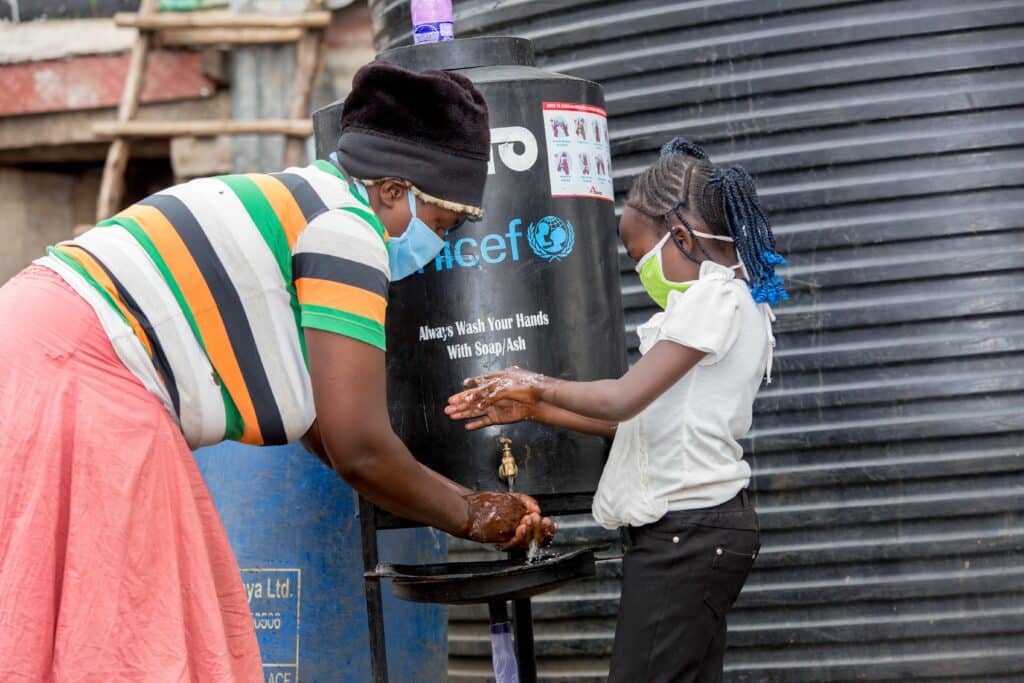
Which areas are the MHH programmes in?
We rolled out the Menstrual Health and Hygiene (MHH) intervention in 13 counties which were affected by floods in 2020. Naturally, flooding caused hygiene issues which made it challenging for girls and women to manage their periods without clean, safe and easily accessible water. The counties are: Busia, Garissa, Isiola, Kakamega, Kilifi, Kisumu, Mandera, Migori, Siaya, Tana River, Taita Taveta, Turkana, Trans Nzoia and Wajir.
Can you enlighten us on what your MHH intervention entails?
We provide AFRIpads menstrual kits to girls and women affected by floods in 13 counties. In 2020, there was heavy rain which caused flash floods. AFRIpads trained trainers in their communities on Menstrual Health and Hygiene (MHH) so in turn they could empower their home communities.
Additionally, we provided WASH facilities in schools and communities. It’s important for girls and women to have a private, clean and separate toilet where they can manage their menstruation in safety and dignity.
UNICEF has been in Kenya for approximately 48 years. What role has UNICEF, as one of the longest serving agencies in Kenya, played in the Menstrual Health and Hygiene (MHH) sector?
UNICEF has contributed to the development of the National Menstrual Health Management (MHM) Policy and strategy in Kenya and supported its dissemination in two counties. We also advocated for the integration of MHM in school health policy.
Additionally, we provided technical and financial support in development of the MHM handbook for teachers in schools, Hygiene promotion handbook for teachers, development of standards and guidelines for WASH infrastructure in schools, the ‘Girls’ Puberty Book’ and ‘Boy’s Puberty Book’ with support of Grow and Know, development of standards for reusable sanitary pads. Furthermore, with the Ministry of Health and other partners, UNICEF supported training of county government staff on MHM; training of county First Ladies on MHM; trained MHM practitioners in Nairobi including two celebrities who are currently promoting MHM in their work and among their fan base, advocated for free sanitary pads distributed in public primary schools under the Basic Education Amendment Act, and supported the construction of MHM/WASH facilities within schools.
Our advocacy and MHH interventions have impacted thousands of lives. One story that struck cord with me was Harriet*, a 14 year student at Mikei Primary School, Migori County who is a beneficiary of the UNICEF Football for WASH (F4WASH) project.
The F4WASH project is a relatively recent innovation that was introduced in Kenyan schools in 2012 by the Dutch Government in partnership with UNICEF, SIMAVI, KNVB, and Vitens-Evides International. This public-private partnership is a three-country initiative focusing on improving the sustainability of WASH infrastructure investments in schools and increasing the efficacy of hygiene promotion activities.
Gender equity and the inclusion of students with disabilities are fundamental aspects of the F4WASH programme, in line with WASH in schools (WinS) aims of preserving dignity, inclusiveness, academic performance, and ability to attend school through menstrual hygiene management (MHM) and accessible facilities.
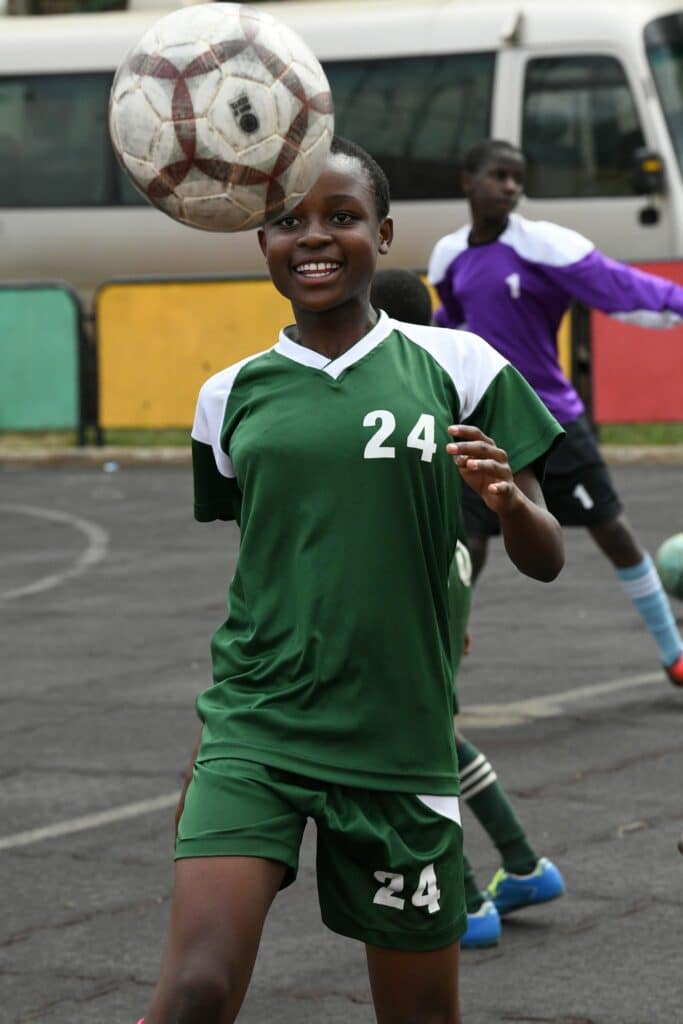
Meet Harriet* an upcoming sports journalist
“Before the F4WASH project, I spent a lot of time going to fetch water from the river and my hygiene levels were poor at school.
However, through the project, my school got football coaching, additional latrines, and a water tank. The availability of clean water has made it easy for me to maintain my personal hygiene through handwashing and hygiene training introduced by the project.
I have also benefited from reusable sanitary towels and this has helped me to continue going to school during my periods. Also in my football team, we were able to reach regional primary school games through the training we received. My ambition is to become a sports journalist when I grow up and this will allow me to contribute more hygiene awareness using sports, and campaign for better health within my community.”

Thank you UNICEF Kenya for challenging menstrual myths, taboos, and stigma as well as providing MHH materials and education to Harriet * and thousands of others. You are working to enable girls and women like Harriet* to fulfil their potential amidst a pandemic.
